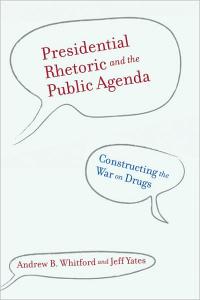Movie fans might check out Stanley Fish’s top 10 American movies of all time and his discussion thereof in the New York Times. Here’s the quick read (only the first 2 are in order, the others are tied for 3rd according to Fish):
1. The Best Years of Our Lives (1946)
2. Sunset Blvd. (1950)
3. Double Indemnity (1944)
3. Shane (1953)
3. Red River (1948)
3. Raging Bull (1980)
3. Vertigo (1958)
3. Groundhog Day (1993)
3. Meet Me in St. Louis (1944)
3. A Tree Grows in Brooklyn (1945)
It’s pretty interesting that Fish finds that only two post 1950s movies warrant inclusion and that one of them is Groundhog Day (although I did like the film). Feel free to disagree with him, the commenters in the Times certainly do.
In other Fish news his new book is “Save the World on Your Own Time” (Oxford University Press 2008). In it he basically says that academics and academic institutions should stick to what they were meant to do – conduct research and teach. We will give Fish the benefit of the doubt and assume that he put this top 10 list together on his own time. Here’s the book’s synopsis:
What should be the role of our institutions of higher education? To promote good moral character? To bring an end to racism, sexism, economic oppression, and other social ills? To foster diversity and democracy and produce responsible citizens?
In Save the World On Your Own Time , Stanley Fish argues that, however laudable these goals might be, there is but one proper role for the academe in society: to advance bodies of knowledge and to equip students for doing the same. When teachers offer themselves as moralists, political activists, or agents of social change rather than as credentialed experts in a particular subject and the methods used to analyze it, they abdicate their true purpose. And yet professors now routinely bring their political views into the classroom and seek to influence the political views of their students. Those who do this will often invoke academic freedom, but Fish argues that academic freedom, correctly understood, is the freedom to do the academic job, not the freedom to do any job that comes into the professor’s mind. He insists that a professor’s only obligation is “to present the material in the syllabus and introduce students to state-of-the-art methods of analysis. Not to practice politics, but to study it; not to proselytize for or against religious doctrines, but to describe them; not to affirm or condemn Intelligent Design, but to explain what it is and analyze its appeal.”
Given that hot-button issues such as Holocaust denial, free speech, and the Israeli-Palestinian conflict are regularly debated in classrooms across the nation, Save the World On Your Own Time is certain to spark fresh debate-and to incense both liberals and conservatives-about the true purpose of higher education in America.


Stanley Fish sure is an old curmudgeon, isn’t he? While I haven’t read his recent books, his blog for the New York Times is just plain crotchety at times.